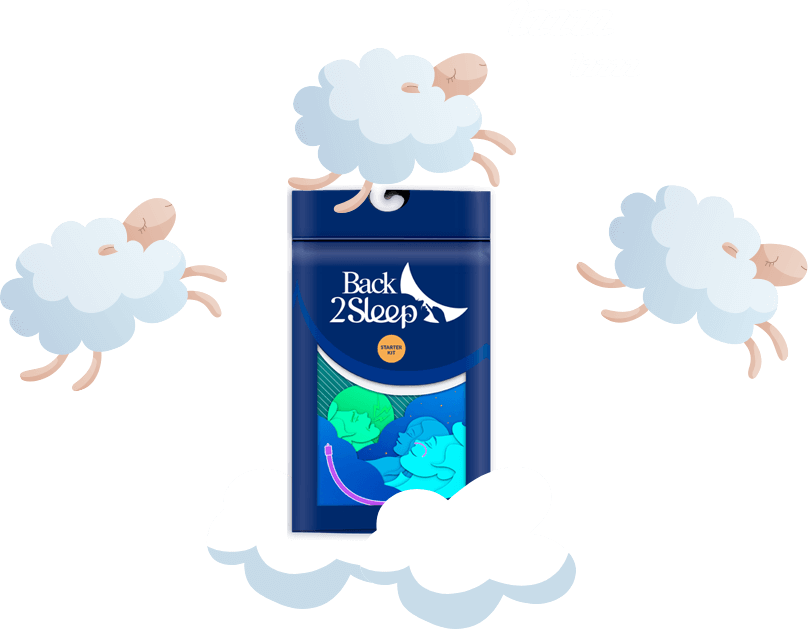Chronic sinusitis: definition, causes, symptoms and solutions
Chronic sinusitis is a disorder that is often misunderstood and that affects many people.
It is characterised by a persistent inflammation of the sinuses, the air-filled cavities behind the forehead, cheeks (maxillary), eyes (sphenoidal) or between the eyes (ethmoidal).
Unlike the common cold or acute sinusitis, which are temporary, chronic sinusitis lasts several weeks and can have a severe impact on quality of life. It is characterized by nasal obstruction, mucus discharge, loss of smell, and sometimes facial pain.
What is chronic sinusitis?
Chronic sinusitis can be triggered by a variety of factors, such as allergies, nasal polyps, or a deviated septum. This disorder affects not only the sinuses but also the quality of breathing and, by extension, the quality of life.
Treatment of sinusitis often requires a more comprehensive approach, sometimes including medical or surgical interventions.
Symptoms of chronic sinusitis
Symptoms of chronic sinusitis include persistent nasal congestion, often thick nasal discharge, reduced sense of smell, facial pain and headaches.
Patients may also suffer from coughing, especially at night, and general fatigue. These symptoms, which are constant and often debilitating, can significantly interfere with daily activities, affecting sleep, concentration, and even mood.

Diagnosis of chronic sinusitis
To diagnose chronic sinusitis, healthcare professionals rely on the clinical examination, the patient's medical history, and sometimes additional tests.
These tests may include a nasal endoscopy, which looks inside the nasal cavities, or a nasal scan to identify obstructions or structural abnormalities.
Accurate diagnosis is crucial in determining the most appropriate treatment, whether medical, surgical, or based on natural remedies.
Causes of chronic sinusitis
The causes of chronic sinusitis are multiple and often interconnected.
- Repeated bacterial or viral infections can damage the nasal mucosa and lead to chronic inflammation.
- Allergies, which are frequent, also play a major role, causing swelling of the nasal mucous membranes and sinuses.
- Nasal polyps, non-cancerous growths in the nasal cavities, can obstruct the airways and worsen symptoms.
Other factors, such as deviations of the nasal septum or structural problems with the sinuses, can also contribute. Understanding these causes is crucial for targeted and effective treatment.
Particular pain may be localized in different places. In the presence of maxillary sinusitis, the pain will mainly be located under the eye.
Frontal sinusitis, on the other hand, will cause localized pain in the upper eyes and forehead. Sphenoidal sinusitis causes pain located at the back of the eye.
Finally, ethmoid sinusitis, which is very common in children, causes pain in the inner corner of the eye.

Risk factors and prevention
Several factors increase the risk of developing chronic sinusitis.
- People with allergies, asthma or other respiratory illnesses are more likely to experience it.
- Regular exposure to irritants like pollution, cigarette smoke, or chemicals can also play a role.
To prevent chronic sinusitis, it is advisable to maintain good nasal hygiene, avoid known allergens, and treat any upper respiratory tract infections promptly.
Simple measures, such as using saline sprays or humidifying indoor air, can also help to reduce risks.
Treatment of chronic sinusitis
The treatment of chronic sinusitis is based on several axes: medication, home remedies, and sometimes surgical interventions.
Medications include antibiotics for bacterial infections, corticosteroids to reduce inflammation, and decongestants. For allergy-related cases, antihistamines may be prescribed.
At the same time, home remedies such as steam inhalations, the use of saline sprays or essential oils such as eucalyptus, can help to relieve symptoms.
In cases where medical treatments are not sufficient, surgery may be considered, such as correcting a deviated septum or removing polyps.

When to see a doctor?
It is advisable to consult a doctor in case of persistent symptoms of sinusitis that do not improve.
If you experience severe nasal congestion, severe facial pain, fever, loss of smell, or worsening symptoms, a medical consultation is required.
Additionally, in cases of recurrent sinusitis symptoms, an evaluation by an ear, nose and throat specialist may be necessary to rule out more complex underlying causes and discuss advanced treatment options.
FAQs about chronic sinusitis
This section answers to frequently asked questions about chronic sinusitis that have not been previously treated.
Q.How to tell the difference between chronic sinusitis and a common cold?
The common cold and chronic sinusitis have similar symptoms, but there are some key differences.
A cold, usually caused by a virus, usually lasts a week to ten days and gets better on its own.
Chronic sinusitis, on the other hand, is characterized by prolonged duration (at least 12 weeks), persistent nasal congestion, thick nasal discharge, loss of smell, and sometimes facial pain.
Unlike the common cold, it may require specific treatment to relieve symptoms and prevent complications.
Q.Can chronic sinusitis cause complications?
Yes, although rare, chronic sinusitis can lead to complications.
These complications can include infections of the surrounding tissues, such as orbital cellulitis, meningitis or a bone infection.
Other, less common but serious complications can occur if the infection spreads to other parts of the body. It is therefore important to monitor the evolution of symptoms and consult a healthcare professional in case of severe pain, fever, visual disturbances or neurological symptoms.
Q.Can chronic sinusitis be completely cured?
Complete recovery from chronic sinusitis depends on several factors, including the underlying cause and response to treatment.
In some cases, effective symptom management and treatment of the underlying causes can lead to a complete resolution.
However, for some patients, chronic sinusitis can be a long-term condition requiring ongoing management. Regular follow-up with a healthcare professional and adaptation of treatment according to the evolution of symptoms are essential for a better quality of life.
Le Magazine de la Santé (The Health Magazine) on the France 5 channel (on the french television), is about our new solution for a better sleep.
Previously Nastent. *Now Back2Sleep

- Choosing a selection results in a full page refresh.
- Opens in a new window.







